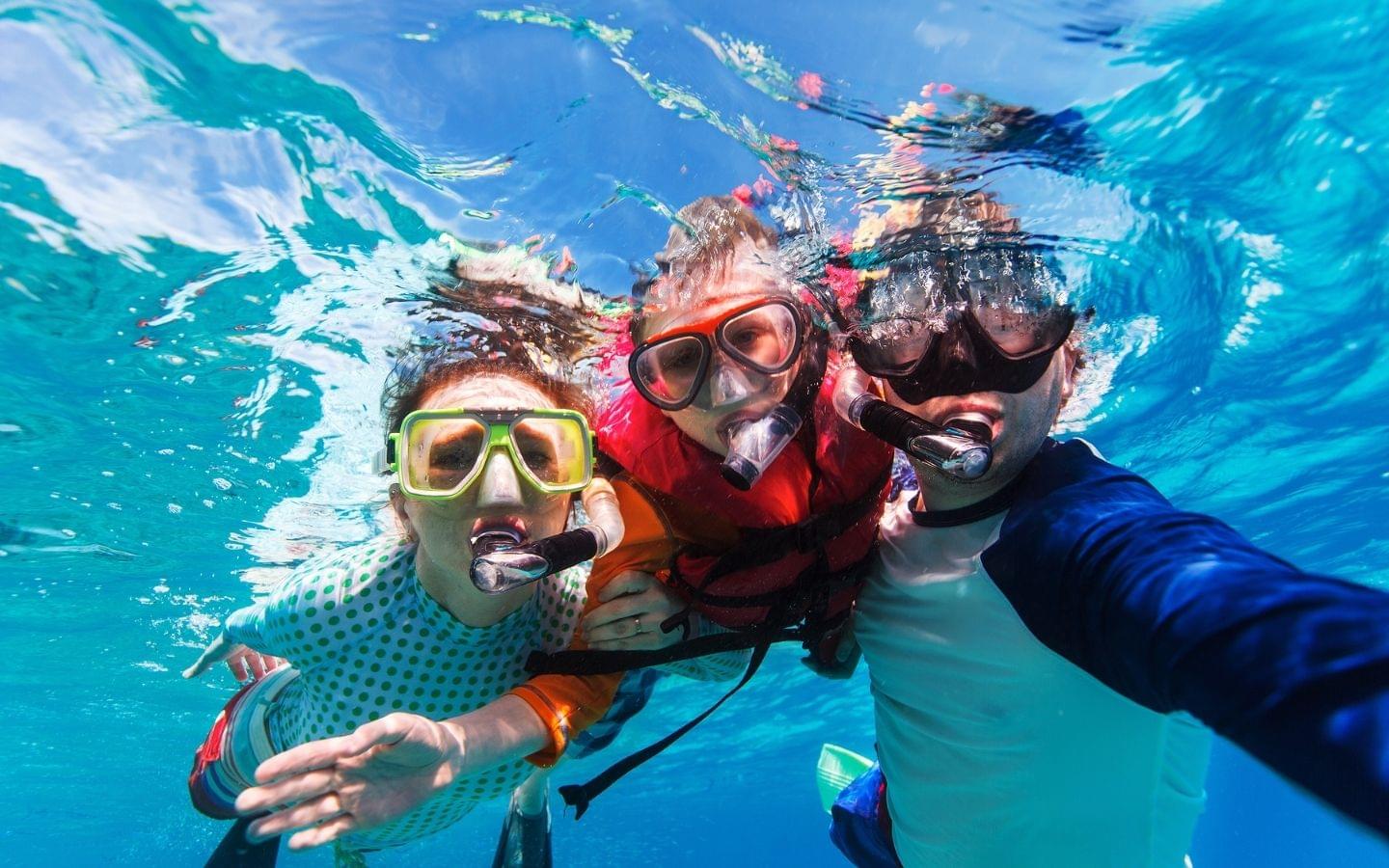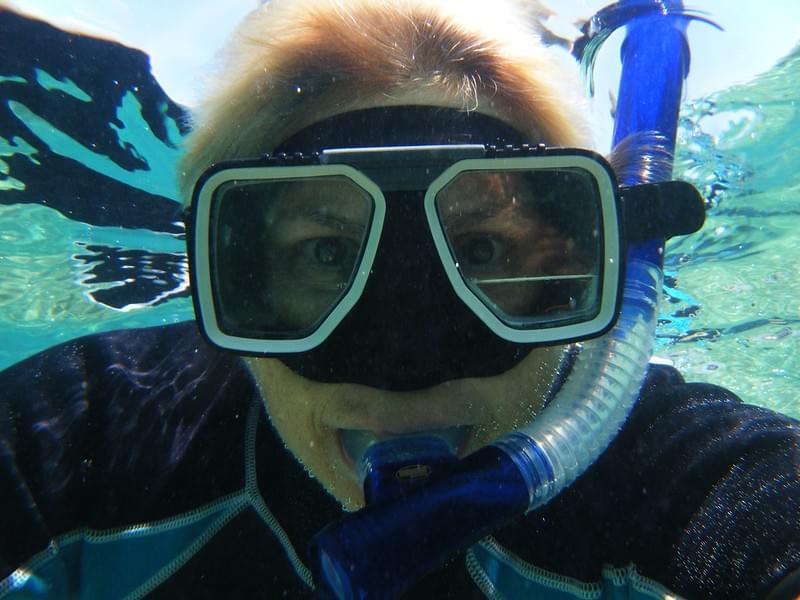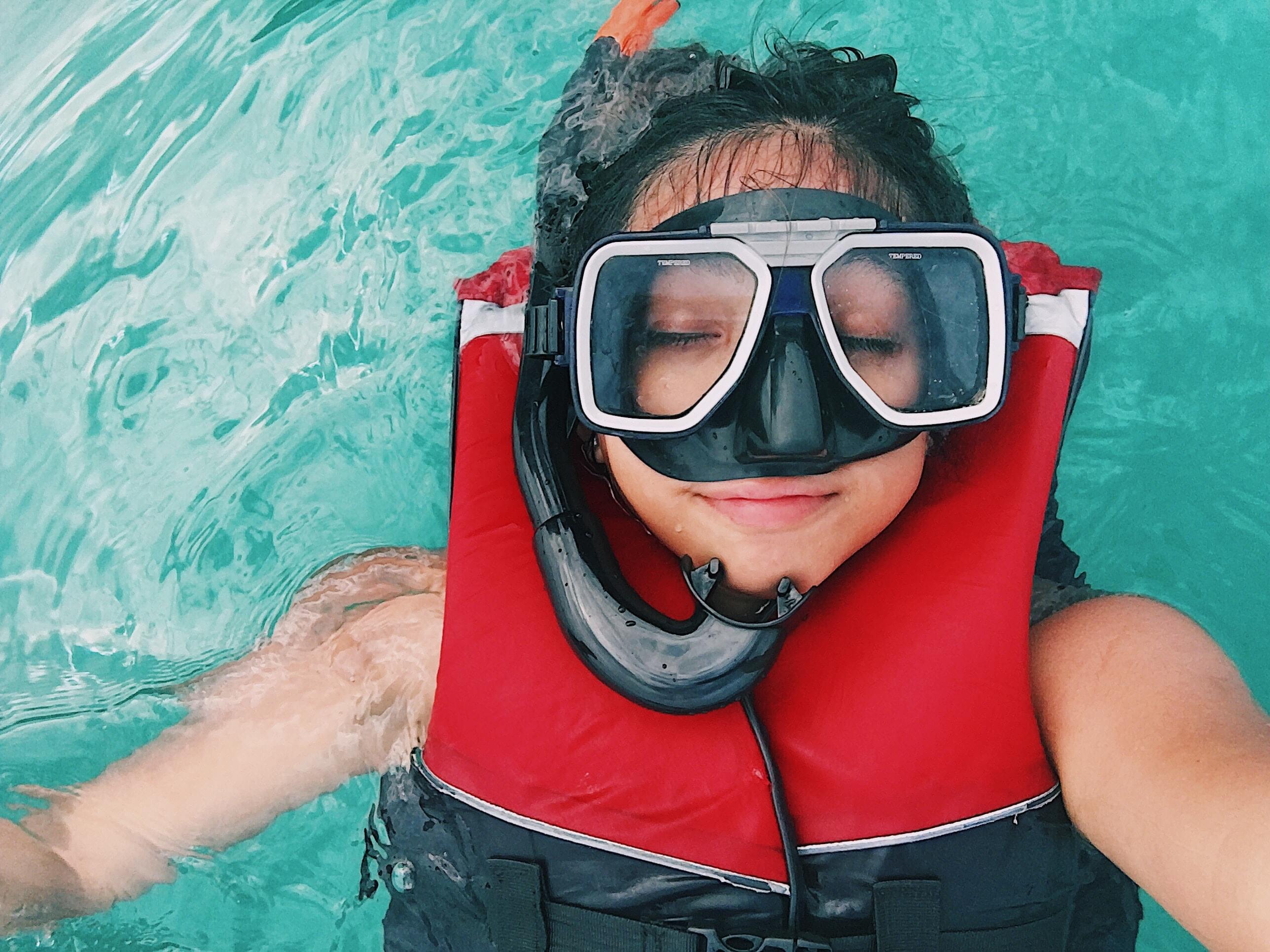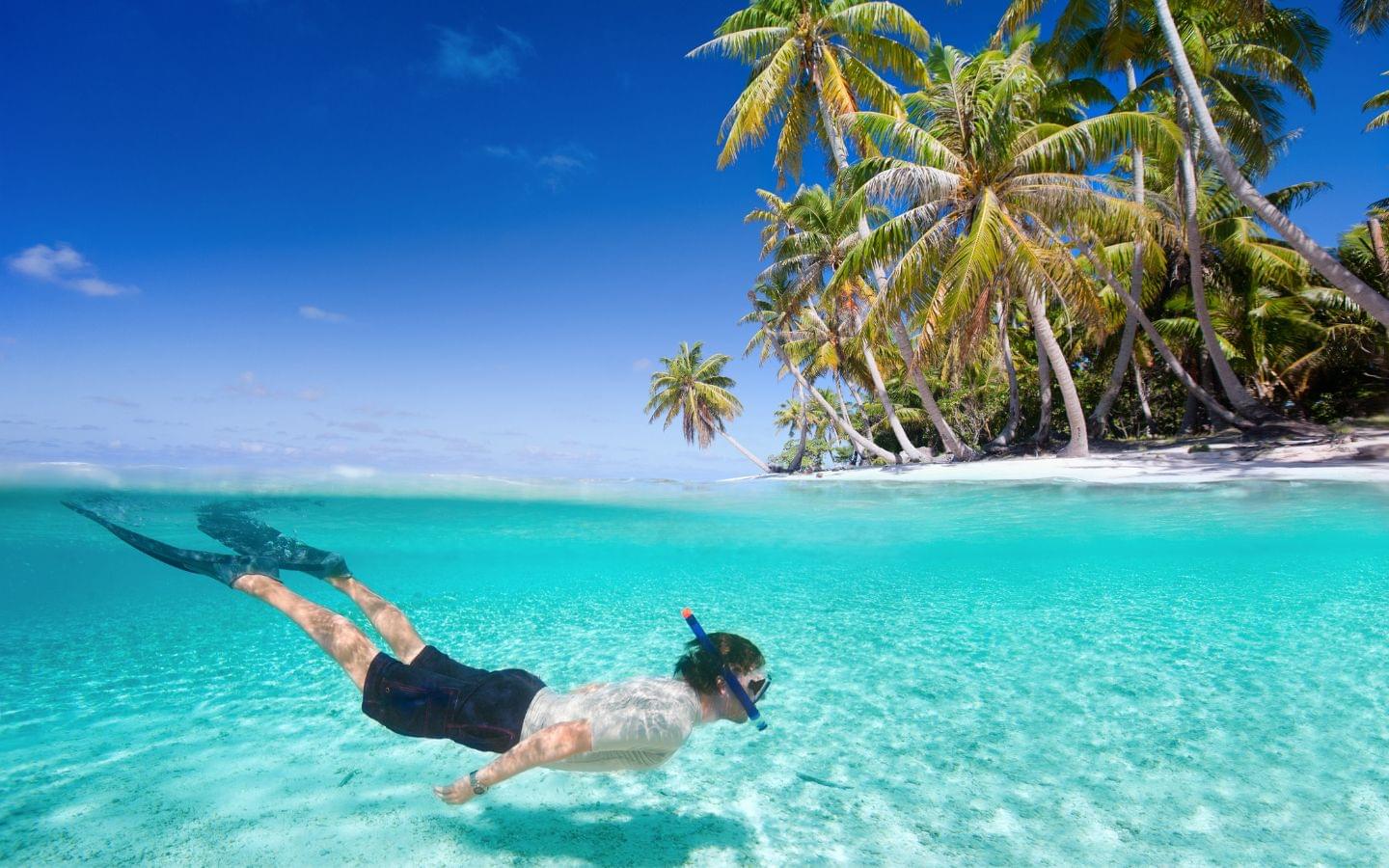Snorkeling for non-swimmers: Practical tips and advice
Non-swimmers can still enjoy snorkeling with some planning and preparation. Here are our top tips to prepare for your first snorkeling adventure.
If you don’t know how to swim but want to go snorkeling, you may wonder if it’s safe for you to try this exciting watersport. With some planning and preparation, non-swimmers can safely experience snorkeling in many areas.
You don’t have to know how to swim to snorkel, but feeling comfortable in the water can make the experience much more relaxing and enjoyable. Non-swimmers can use floatation aids like snorkel vests to keep them afloat and snorkel in shallow areas where swimming is not required. Still, it’s best to have some swimming experience before trying snorkeling.
How to prepare for your first snorkeling trip
It can be challenging to figure out how to prepare for your first snorkeling trip, especially if you live in a landlocked area and are not a strong swimmer. Here are some tips you can try anywhere to feel more comfortable once you get into the ocean.
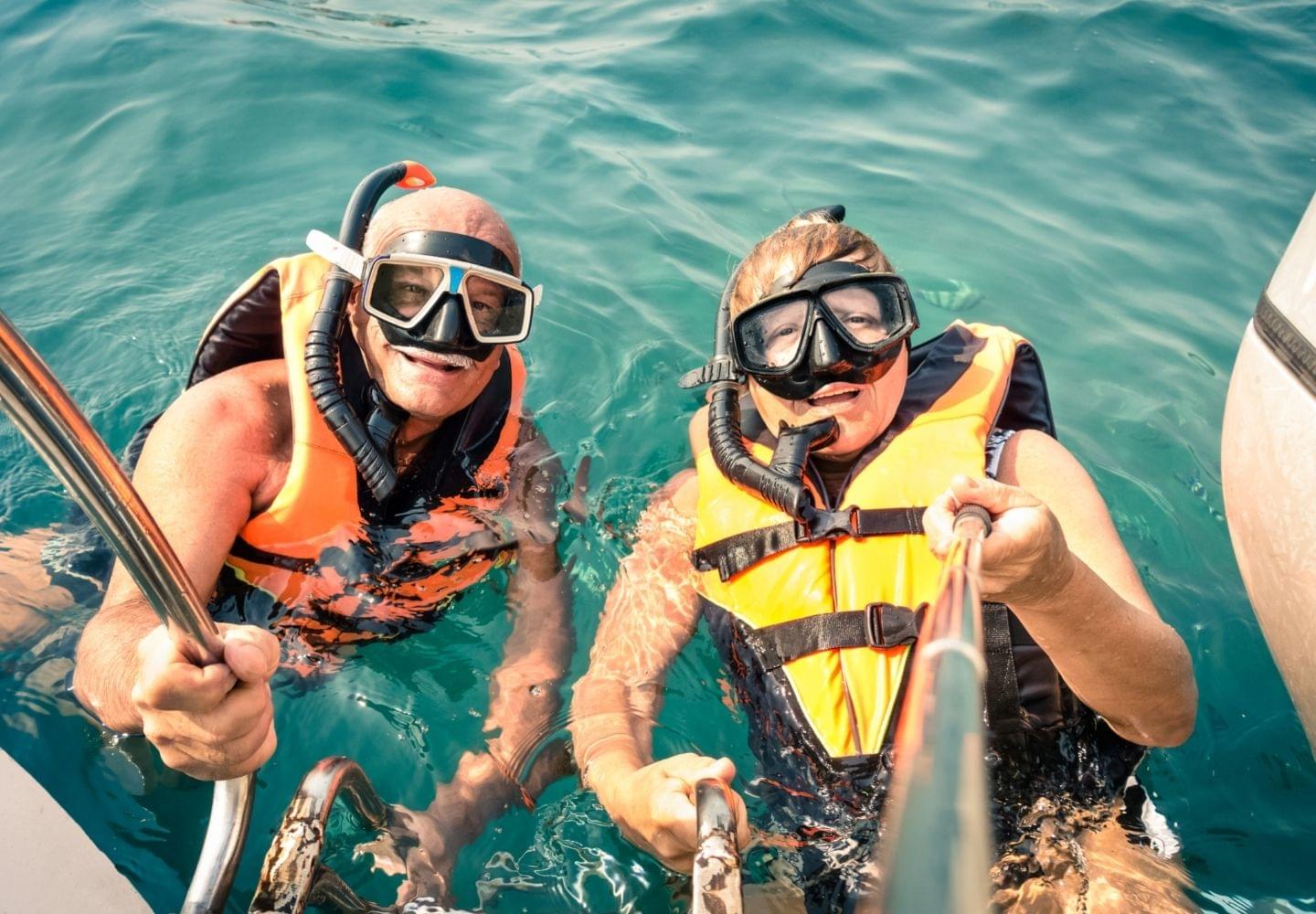
Take swimming lessons
Taking swimming lessons is one of the best ways you can prepare for your snorkeling trip. You don’t need to be a strong swimmer, but learning some basic techniques will significantly improve your comfort and safety in the water.
You should learn how to float on the surface of the water, stay relaxed, and control your breathing. It also helps to know some standard swimming strokes like the breaststroke and freestyle, but you don’t have to be an expert.
For snorkeling, you should pay extra attention to your kick. To snorkel efficiently and conserve energy, it’s best to float on the surface of the water, keep your arms at your sides, and propel yourself forward with your legs and fins.
Test out your gear ahead of time
Learning to trust your equipment is a big part of feeling safe in the water. If you’re buying your own snorkeling gear ahead of your trip, choose beginner-friendly equipment and practice using it before you leave.
Dry snorkels and full-face snorkel masks are good choices for beginners. You should also wear a snorkeling vest or use another flotation aid to help you stay afloat and maintain proper body position. Here are some of our recommended snorkel vests and travel-friendly snorkel sets, including a snorkeling mask, snorkel, and fins.
Once you’ve purchased your snorkeling equipment, make sure it fits you well and familiarize yourself with how everything works. That way, you’ll feel comfortable using it once you get to the sea. You can practice in shallow water, such as a swimming pool, lake, or pond if you have access to one. Otherwise, you can use a bathtub or bucket at home. These sessions will help you to get used to breathing through the snorkel in a controlled setting.
Practice deep breathing techniques
Learning to breathe deeply will help you stay calm and relaxed, prevent dizziness, and improve your safety while snorkeling. Breathing through a snorkel requires your lungs to work harder because of the additional respiratory dead space 1. If you’re not exchanging air efficiently through the snorkel tube, it can cause carbon dioxide to build up in the blood. This build-up can make you feel dizzy or like you’re not getting enough air.
Thankfully, deep breathing techniques can help prevent these issues from occurring. Before your trip, practice diaphragmatic breathing by inhaling and exhaling deeply and slowly. Try it first without a snorkel, then progress to practicing the techniques with the snorkel in your mouth while still on land. Once it feels comfortable, try the same breathing exercises with the snorkel in confined, shallow water.
For more beginner snorkeling tips, check our detailed guides and tutorials:
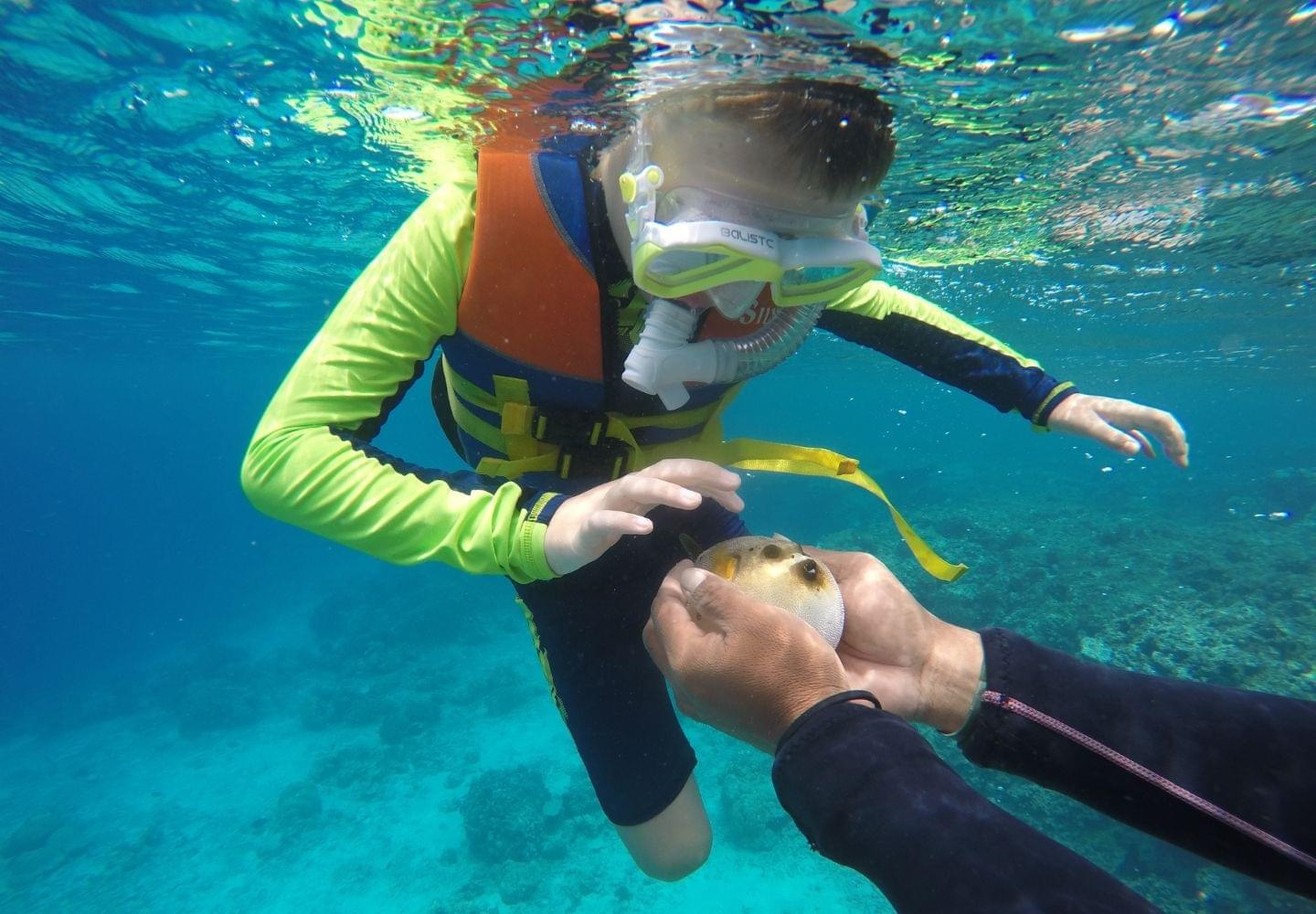
Trip planning tips and things to consider
In addition to preparing for the trip physically and mentally, you’ll also want to think about safety and logistics once you get there. Here are some things to keep in mind when planning your first snorkeling holiday.
Choose your snorkeling destination carefully
Most snorkeling destinations have some protected beaches and coves that are suitable for beginners. Ahead of your trip, you can do some online research to find the best beginner-friendly spots in your chosen area.
Our destination guides are a great place to start. You can also use a guidebook or talk to a local expert, a hotel concierge, or another trusted source once you arrive.
Here are things to look for when selecting your snorkeling site:
- Shallow, calm water with no big waves or strong currents: Snorkeling is easiest to learn in calm, shallow areas, so choose a spot known for these qualities. Avoid deep water, check the weather and current conditions before you go, and don’t enter the water if it’s rough or makes you feel uncomfortable.
- Close to shore: Avoid offshore sites and open water until you get some snorkeling experience and feel more confident as a swimmer.
- Has lifeguards or is located in a moderately trafficked area: At the beginning, you should avoid remote areas. Pick a spot that has a lifeguard or plenty of other people around in case of an emergency.
- Easy entry into the water: Snorkeling right from a sandy beach is a perfect way to start snorkeling. The more sharp rocks and obstacles you need to watch out for, the less focused you’ll be on just relaxing and enjoying the experience.
- **Warm water: **Although warm water isn’t essential for your first trip, it makes the experience more comfortable and doesn’t require additional gear, like a wetsuit or neoprene booties.
- **Saltwater: **Since saltwater is denser than freshwater, it provides more buoyancy and makes it easier to stay afloat 2. You can plan your first snorkeling adventure in either a freshwater or saltwater body, but you may find it easier to snorkel in the sea or ocean.
Always snorkel with a buddy
Snorkeling with a buddy is a tip that even experienced snorkelers use to stay safe in the water. If it’s your first time and you’re not a confident swimmer, you should never go into the water alone.
Consider going with a guide
Booking a snorkeling trip with an experienced guide is a great way for non-swimmers and weak swimmers to try snorkeling safely. Some companies have private tours and group trips specifically geared towards first-timers. Other guided snorkeling trips require guests to know how to swim, so check with the tour company ahead of time.
Floatation devices for snorkelers
Wearing a floatation device is one of the best ways you can boost your safety while snorkeling. You can choose from various products, including snorkeling vests, life jackets, pool floats, fun noodles, swim buoys, and ski belts.
Snorkel vests are the best option because they keep you afloat while still allowing you to swim with your face in the water. This is the ideal body position for snorkeling and gives you the best view of marine life below. You can read more about why snorkeling vests are the best flotation devices for snorkelers in our post here.
If you want to purchase your own snorkel vest, Rrtizan Inflatable Snorkeling Vest on Amazon is a simple, budget-friendly product that will keep you afloat. For a complete list of the floatation aids we recommend, check out our article about the best snorkeling vests.
Resources
-
Toklu, A S et al. “Ventilatory and metabolic response to rebreathing the expired air in the snorkel.” International Journal of Sports Medicine, vol. 24,3 (2003): 162-5. doi:10.1055/s-2003-39084. ↩
-
Pawlowicz, R. “Key Physical Variables in the Ocean: Temperature, Salinity, and Density.” Nature Education Knowledge, vol. 4, no. 4, 2013, p.13, nature.com. ↩
Last updated 17 October 2024
